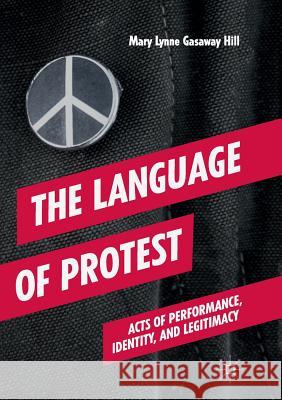The Language of Protest: Acts of Performance, Identity, and Legitimacy » książka
topmenu
The Language of Protest: Acts of Performance, Identity, and Legitimacy
ISBN-13: 9783030084516 / Angielski / Miękka / 2019 / 317 str.
Kategorie:
Kategorie BISAC:
Wydawca:
Palgrave MacMillan
Język:
Angielski
ISBN-13:
9783030084516
Rok wydania:
2019
Wydanie:
Softcover Repri
Ilość stron:
317
Waga:
0.40 kg
Wymiary:
21.01 x 14.81 x 1.78
Oprawa:
Miękka
Wolumenów:
01
Dodatkowe informacje:
Wydanie ilustrowane











